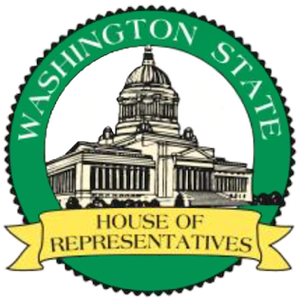The Washington State House Regulated Substances and Gaming Committee (WA House RSG) was charged with considering issues relating to the regulation and taxation of alcohol, tobacco, vapor products and cannabis, as well as product safety and access, and issues relating to the regulation and oversight of gaming, including tribal compacts. Formerly the Washington State House Commerce and Gaming Committee (WA House COG), the scope of the committee was changed at the beginning of the 2021 state legislative session before the committee was disbanded at the end of 2024.
Public Hearing
- HB 1822 - “Concerning complimentary products provided by short-term rental operators to guests.” (added February 10)
Executive Session
- HB 1159 - “Allowing interstate cannabis agreements.” (added February 10)
- HB 1772 - "Prohibiting products that combine alcohol and tetrahydrocannabinol." (added February 13th)
